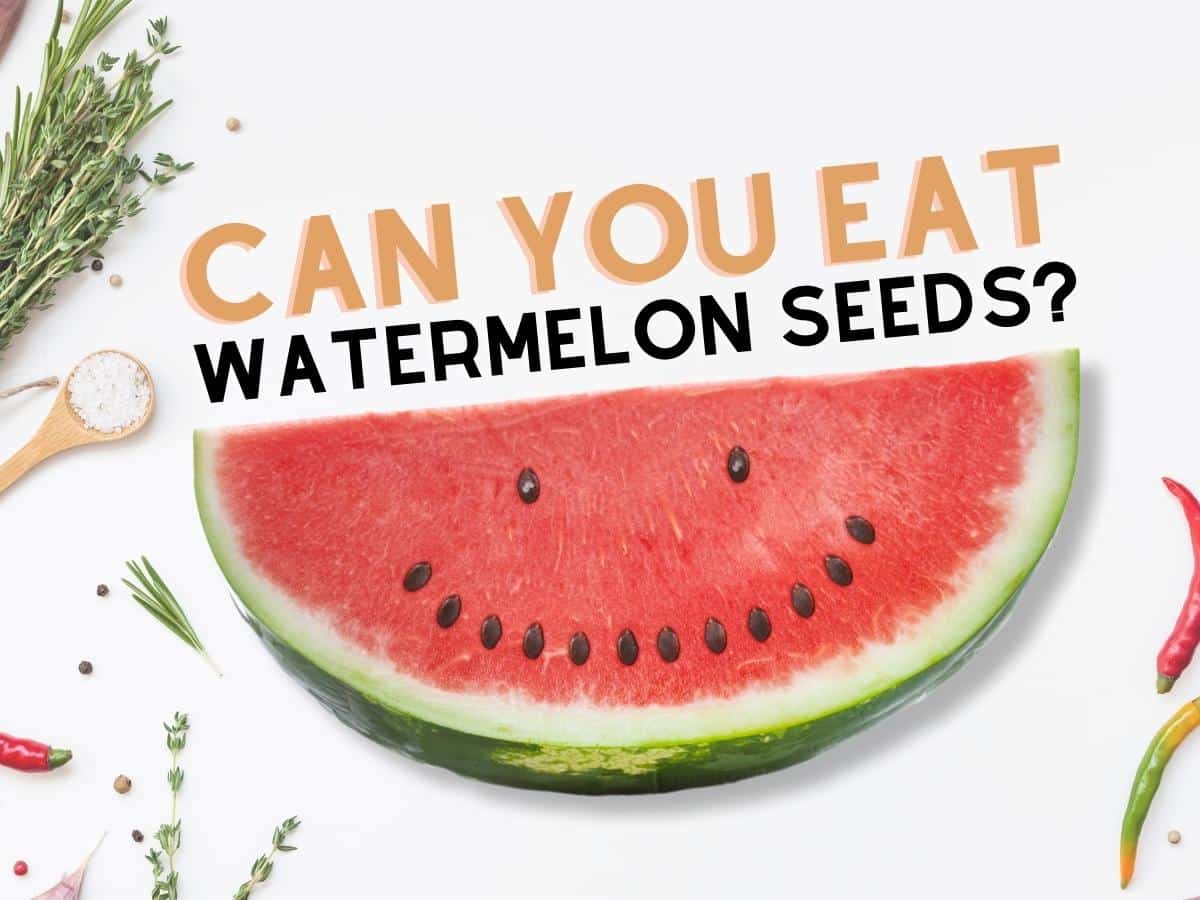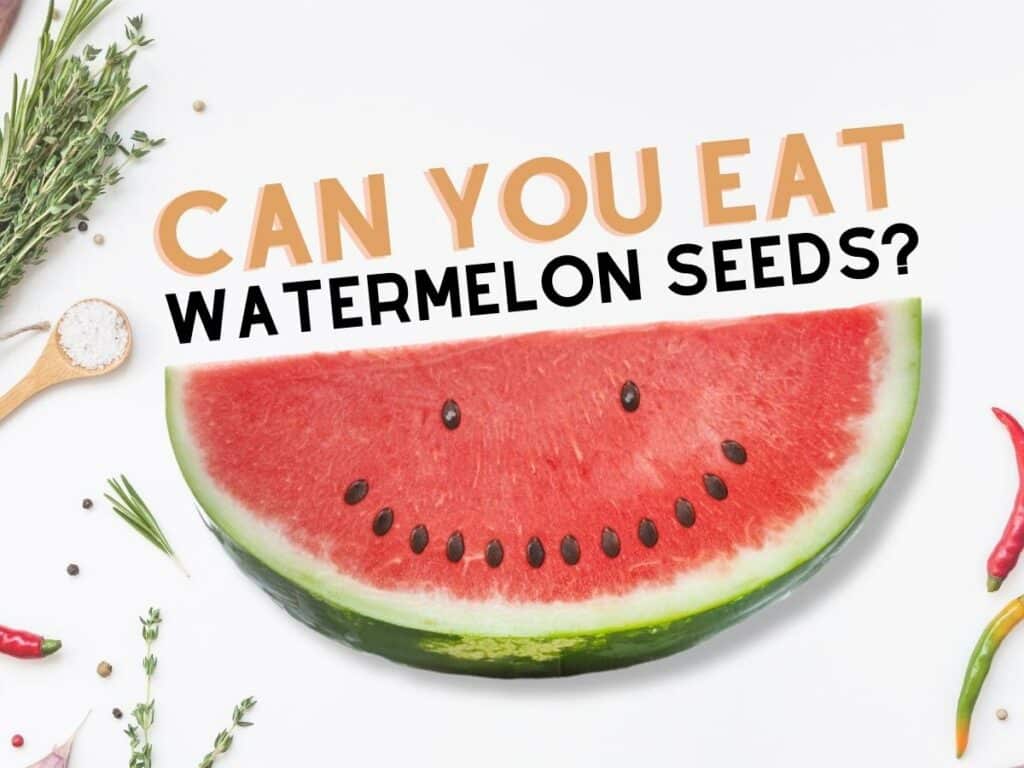
Watermelon, a delicious summer treat, often sparks questions about its black seeds. Lately, ever since the launch of KoalaWriter, SEOs have been asking, can you eat watermelon seeds?
Surprisingly, watermelon seeds are edible and nutritious. Similarly, in digital marketing, some seemingly insignificant elements, like those used in niche site SEOs, hold significant potential.
The white and black seeds in watermelons are safe to eat, offering various health benefits when prepared correctly. Parallel to this, niche site SEOs can powerfully influence website visibility when used effectively.
Just as watermelon seeds can be used creatively in cooking, niche site SEOs can innovatively enhance the online presence of specific markets. The power of these SEOs, like the hidden value in watermelon seeds, lies in how well we understand and utilize them.
Key Takeaways (Thanks KoalaWriter, You Rock!)
- Watermelon seeds are edible and safe to consume for most people.
- These seeds offer various nutritional benefits, such as being rich in magnesium and other essential minerals.
- There are multiple ways to prepare and enjoy watermelon seeds, from roasting them to incorporating them into recipes.
Can You Eat Watermelon Seeds? Are They Safe?
Yes, watermelon seeds are perfectly safe to eat! Both the black and white seeds found in watermelons can be consumed, although they have slightly different compositions. The black seeds are fully mature and have a hard shell, while the white seeds, also known as seed coats, are less developed and have a softer texture.
While seedless watermelons have become more popular over the years, they still contain small, edible white seeds. These seed coats may be easier to digest than the more mature black seeds, but both varieties can be enjoyed without issue.
Quick side note to say this article was written with the help of my friend, KoalaWriter. Here are some of the settings I used: Gpt Version: gpt-4 Include Faq: true Point Of View: third_person Real Time Data: true Target Keyword: can you eat watermelon seeds? Should Cite Sources: true Tone Of Voice Profile: friendly Include Key Takeaways: true Seo Optimization Level: automatic Use Scholarly Sources Only: true
In fact, watermelon seeds are full of nutrients; they contain healthy fats, protein, and essential minerals that the body needs like potassium and magnesium. To get the most nutritional benefit from the seeds, it’s best to roast and consume them, similar to how you would eat pumpkin or sunflower seeds.
The seeds themselves are safe to eat, consuming them in large quantities might cause some discomfort in the digestive system. As with any food, moderation is key when eating watermelon seeds. Eating a few seeds as part of a balanced diet should not cause any issues.
So go ahead and enjoy watermelon seeds without any worries! They are not only safe to eat but also a tasty and nutritious addition to your diet.

Nutritional Benefits of Watermelon Seeds
Watermelon seeds are more than just a byproduct of the delicious fruit; they also pack a punch in terms of nutrition. Surprisingly, these often discarded seeds have significant health benefits.
Let’s explore some of those benefits and learn why we should consider adding them to our diets.
Watermelon seeds provide a considerable source of nutrients, including protein, which is essential for growth, repair, and maintaining a strong immune system. So, next time you dive into a slice of watermelon, don’t be too quick to toss those seeds away!
Watermelon seeds are rich in magnesium, a vital mineral that contributes to a wide range of bodily functions. Magnesium aids in maintaining a healthy heart, regulating blood pressure, and promoting optimal nerve function.
Beyond magnesium, watermelon seeds also contain other essential minerals, such as potassium and iron. Potassium plays a crucial role in balancing the fluids in our bodies, while iron is essential for the production of healthy red blood cells. So, munching on some watermelon seeds as a snack can help you meet your body’s needs for these essential nutrients.
It doesn’t stop there; watermelon seeds are also a great source of zinc, which is necessary for supporting a strong immune system, wound healing, and maintaining a proper sense of taste and smell. With all these minerals in their arsenal, watermelon seeds definitely deserve a spot in our regular diets.
The seeds also supply us with various vitamins including vitamin B, which helps support energy production and a healthy metabolism. Considering all these nutritious elements within watermelon seeds, it’s clear that they are worth keeping and consuming.
Incorporating watermelon seeds into your diet can provide numerous health benefits, from boosting your immune system to supporting a healthy heart. So next time you’re enjoying a watermelon, don’t forget to appreciate the nutritional powerhouse hiding within its seeds!
How to Prepare and Eat Watermelon Seeds
Watermelon seeds are not only edible but also packed with nutrients like magnesium, zinc, and protein. Here’s a friendly guide on how to prepare and enjoy them.
One popular way to eat watermelon seeds is by roasting them. Start by rinsing the seeds in water to remove any fruit remnants. Spread the seeds out on a baking sheet and let them air dry completely. This may take a few hours or overnight.
Next, preheat your oven to 325°F (163°C). In a bowl, toss the dried seeds with a little olive oil and salt, or any other seasonings you prefer. Spread the seasoned seeds evenly on the baking sheet. Place the sheet in the oven and roast for 10 to 15 minutes, or until the seeds are golden brown. Make sure to stir them occasionally for even roasting. Once they’re done, let the roasted seeds cool before snacking on them.
Another way to enjoy watermelon seeds is by sprouting them. To sprout the seeds, first, remove the black shell by gently cracking it and peeling it off. Soak the watermelon seeds in water for somewhere between 8 and 12 hours. Drain the water and rinse the seeds, then place them in a sprouting jar or container. Keep the container in a dark spot, rinsing the seeds every 12 hours. Within a few days, the seeds will begin to sprout. Finally, you can eat them raw or add them to salads and other dishes.
Whether you prefer to roast them in the oven or soak them for sprouting, watermelon seeds can be a nutritious and nice-tasting addition to your diet. Just remember to keep it friendly and have fun while preparing them.
Roasting and Flavoring Watermelon Seeds
Roasting watermelon seeds is a simple process that can transform them into a delicious and nutritious snack. To begin, rinse the seeds thoroughly, removing any remaining fruit bits, and spread them evenly on a baking sheet. Preheat your oven to 325°F (163°C) and roast the seeds for approximately 15 minutes, stirring occasionally to ensure even cooking. Once they are golden brown and crisp, remove them from the oven and allow them to cool.
To enhance the taste of roasted watermelon seeds, you can experiment with various seasonings. Adding a sprinkle of cinnamon before roasting gives them a subtly sweet flavor that pairs well with the natural nuttiness of the seeds. For an extra spicy flavor, add some cayenne pepper or chili powder. Remember to toss the seeds with your chosen seasonings before they go into the oven.
Feel free to get creative with the flavor combinations! Here are a few ideas to get you started:
- Sweet and Spicy: Combine a pinch of cinnamon and a pinch of cayenne pepper for a perfect balance of sweetness and heat.
- Savory: Toss the seeds in your favorite savory spices like garlic powder, onion powder, or even a little bit of smoked paprika.
- Herb-infused: Give the seeds an earthy flavor by mixing them with dried herbs such as rosemary, thyme, or oregano.
Once you’ve discovered your preferred flavor combination for roasted watermelon seeds, you can enjoy this snack on its own or as an addition to trail mixes, yogurt, and salads.
Don’t be afraid to experiment and find the perfect blend of seasonings that suits your taste buds. Happy snacking!
Alternative Ways to Consume Watermelon Seeds
Watermelon seeds are often overlooked when enjoying the juicy fruit, but they can actually be consumed and offer a variety of health benefits.
Here’s some alternative ways to include watermelon seeds in your diet.
One delicious option is making watermelon seed butter by grinding the seeds into a paste, similar to almond or peanut butter. This can be done with roasted seeds, and the resulting butter can be spread on toast or used as a dip for fruits and veggies. It’s a great way to incorporate the nutritional value of watermelon seeds into your meals.
Smoothies are a popular and healthy way to consume fruits and vegetables, and they can also include watermelon seeds. Just add a handful of seeds into your favorite smoothie recipe for an extra boost of nutrients and a slightly nutty flavor.
Watermelon seeds can also be a tasty alternative to sunflower seeds when roasted and seasoned. Simply toss them with a little oil and your choice of spices, then roast them in the oven until they’re golden brown. Enjoy them as a crunchy snack on their own or as a topping for salads.
Another great way to enjoy watermelon seeds is by adding them to a trail mix. Combine roasted watermelon seeds with your favorite nuts, dried fruits, and other seeds for a nutritious and energy-boosting snack during hikes or any on-the-go occasions.
If you have a dehydrator, you can use it to dry out watermelon seeds and create a crunchy snack. After dehydrating, season them with your favorite flavors, and they’re ready to be enjoyed.
Incorporating watermelon seeds into your diet can be both tasty and beneficial. So next time you’re enjoying a watermelon, don’t overlook its nutrient-packed seeds and experiment with these alternative consumption methods.
My favorite video about the famous topic, can you eat watermelon seeds, is right here:
What About Health Benefits of Watermelon Seeds?
Let’s take a look at some of the key advantages of consuming watermelon seeds.
Firstly, watermelon seeds can promote heart health. They are rich in magnesium, a mineral that helps regulate blood pressure and supports overall cardiovascular function. Watermelon seeds are a good source of healthy fats, such as omega-3s, which are known to reduce inflammation and lower the risk of heart disease.
Another great aspect of watermelon seeds is their antioxidant content. These seeds are packed with various phytochemicals that can neutralize free radicals and protect your body from oxidative stress, which contributes to cellular damage and increases the risk of chronic diseases.
Watermelon seeds are also low in calories, making them an ideal snack option for those looking to maintain a healthy weight. In fact, they can be a valuable part of a balanced diet, offering essential nutrients without adding unnecessary calories.
When it comes to supporting your immune system, watermelon seeds are no slouch. They contain vitamin C, which plays a vital role in maintaining overall immune health and helps your body fight against infections.
If you’re struggling with constipation, watermelon seeds might be the answer for you. They can act as a natural remedy for constipation due to their fiber content, which adds bulk to your stool and aids in digestion.
Watermelon seeds can be the perfect post-workout snack. They provide a good mix of essential nutrients, including protein, which helps repair and build muscle tissue after exercise.
So, next time you enjoy a juicy slice of watermelon, don’t forget to save some seeds for a nutritious and tasty treat!
Expert Opinions on Watermelon Seed Consumption
Friendly reminder that experts have weighed in on whether you can eat watermelon seeds, and many of them agree that they can be a nutritious addition to your diet. Registered dietitian Keri Gans states that watermelon seeds can be a healthy snack.1 They are not only safe to consume, but they also provide important nutrients such as magnesium, iron, and healthy fats2.
Jessica Cording, another registered dietitian, echoes this sentiment and points out that consuming watermelon seeds is a simple way to add extra nutrients to your diet, especially when you’re enjoying watermelon as a snack. However, it is important to remember that moderation is key, just like with any other food3.
Nutritionist Gina Keatley recommends roasting the seeds, just like you would with pumpkin or sunflower seeds, before consuming them. This can enhance their flavor and make them more enjoyable to eat4. Watermelon seeds can be easily roasted in the oven, and it’s a great way to give this underappreciated snack a try.
According to nutritionist Beth Warren, watermelon seeds can potentially contribute to achieving a balanced intake of nutrients. Warren adds that although the seeds are small, their nutrient density means that even a small serving can provide a significant amount of essential vitamins and minerals5.
Potential Health Concerns with Watermelon Seeds
Watermelon seeds are generally safe to eat, but there can be a few potential concerns. Consuming excessive amounts of watermelon seeds might lead to digestive issues or discomfort. Here we discuss some of these concerns to help you make informed decisions about including watermelon seeds in your diet.
One common concern is the possibility of experiencing gas and bloating when consuming watermelon seeds. This can happen if your body is not used to digesting seeds, especially in large quantities. However, this is not unique to watermelon seeds and might occur with other seeds as well.
Another potential issue is choking, especially for children, the elderly, or those with swallowing difficulties. Because watermelon seeds are small and hard, they might get lodged in the throat if not chewed properly. To prevent choking, it is important to chew the seeds thoroughly before swallowing.
Watermelon seeds are calorie-dense due to their high-fat content. While they provide healthy fats, it’s essential to consume them in moderation to avoid unwanted weight gain or other health issues linked to excessive calorie intake.
So basically, as long as you enjoy them in moderation, chew them properly, and don’t have any pre-existing digestive issues, watermelon seeds can be a delicious and nutritious addition to your diet.
Growing Watermelon Plants from Seeds
Growing your own watermelon plants from seeds is a fun and rewarding experience. Here’s a friendly guide to help you get started.
To begin, choose a suitable location for your watermelon plants. They need plenty of sunshine, warmth, and well-draining soil. You can grow watermelon plants organically by using high-quality organic compost and avoiding chemical pesticides and fertilizers.
Start your seeds indoors in small pots or trays filled with a well-draining seed-starting mix, about 3-4 weeks before the last frost date. Place the seeds about 1 inch deep and cover them with soil. Keep the soil consistently moist, but not too wet, and place the pots in a bright, warm location. The seeds will typically germinate within 7-10 days.
Once the seedlings have a few sets of true leaves, you can transplant them outdoors. Make sure the outdoor temperatures consistently stay above 50°F (10°C) at night before transplanting. Space your plants about 36-60 inches apart to give them room to grow and spread.
Watermelon plants require plenty of water to produce their large, juicy fruits. Water them deeply and regularly, especially during the fruit development stage. Providing your plants with a consistent supply of water will allow the fruit to develop a rich, sweet flavor and prevent the rind from becoming too hard.
As the watermelon plant grows, it will produce large, lobed leaves and tendrils. Eventually, yellow flowers will appear, which will develop into the fruit. The fruit will continue to grow and swell as it absorbs water and sugar from the plant. To encourage sweet, juicy watermelons, make sure your plants receive adequate sunlight and nutrients throughout the growing season.
And finally, it’s definitely worth repeating: don’t forget that you can indeed eat watermelon seeds! The seeds are not only edible but also nutritious. They are rich in magnesium and can be enjoyed raw, roasted, or even ground into flour for baking.
Don’t be afraid to dig into that delicious watermelon and enjoy the fruits of your labor. Happy gardening!
Frequently Asked Questions
Is it safe to consume raw watermelon seeds?
Yes, it is safe to consume raw watermelon seeds. In fact, they are often eaten either raw or toasted as a snack. Watermelon seeds are a good source of essential nutrients and can provide various health benefits.
How many watermelon seeds should I eat each day?
There’s no recommended amount of watermelon seeds you should eat on a daily basis. However, moderation is key when consuming them, as they are high in calories and eating too many could lead to weight gain. You can consider incorporating a handful of watermelon seeds into your daily diet, possibly mixed with other nuts and seeds to diversify your nutritional intake.
What are the benefits and side effects of eating watermelon seeds?
Watermelon seeds are rich in nutrients like magnesium and essential amino acids, making them a valuable addition to your diet. They can help support heart health, muscle function, and the immune system. There are no known significant side effects of consuming watermelon seeds, but overeating them could lead to gastrointestinal discomfort or excessive calorie intake.
Can you sprout and eat watermelon seeds?
Yes, you can sprout and eat watermelon seeds. Sprouting enhances the nutritional value of seeds by making nutrients more accessible for digestion. To sprout watermelon seeds, simply soak them in water for a few hours, drain, and let them sit in a warm, dark place for a couple of days. Once sprouted, you can add them to salads, smoothies, or even cook them.
Do watermelon seeds contain any harmful substances?
Watermelon seeds do not contain any inherently harmful substances. However, it is best to consume them in moderation due to their high-calorie content.
Are watermelon seeds safe for dogs to eat?
While watermelon seeds are not toxic to dogs, it’s best to avoid feeding them to your pet, as they can pose a choking hazard or cause gastrointestinal blockage. However, if your dog accidentally consumes a small number of seeds, it is unlikely to cause any serious harm.
Side note: I’ve (partially) written a review of KoalaWriter. It’s far from finished yet but why not have a read when you’re crunching on some watermelon seeds?!
Footnotes
- https://www.today.com/health/can-you-eat-watermelon-seeds-experts-tell-us-t115868 ↩
- https://www.healthline.com/watermelon-seed-benefits ↩
- https://www.self.com/story/eating-watermelon-seeds-is-trendy-but-should-you-really-do-it ↩
- https://www.shape.com/healthy-eating/diet-tips/are-watermelon-seeds-safe-to-eat-healthy ↩
- https://www.mindbodygreen.com/articles/are-watermelon-seeds-healthy-to-eat ↩






